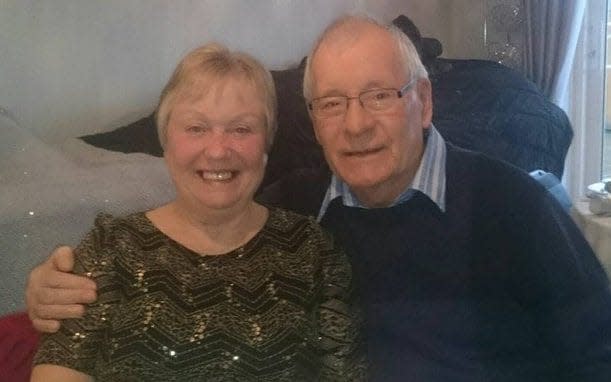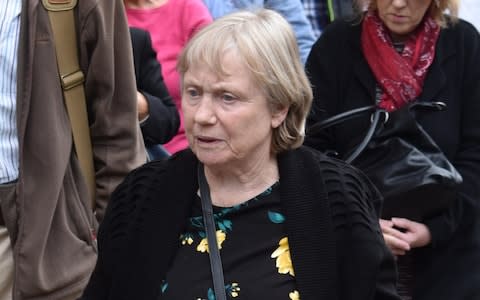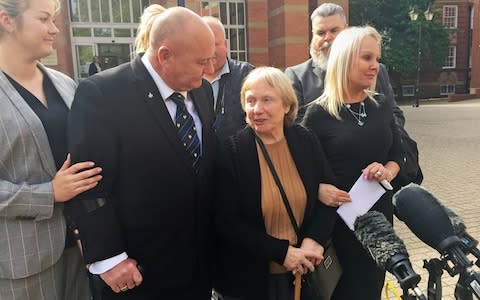Family of pensioner cleared of 'mercy killing' of terminally ill husband, call for a change in the law

The family of an 80-year-old widow cleared of the 'mercy killing' of her terminally ill husband, have called for a change in the law to allow assisted dying after she was forced to endure the "terrible" ordeal of a murder trial.
Mavis Eccleston was found not guilty of the murder and manslaughter of her cancer stricken husband, Dennis, 81, after she gave him a drink containing a lethal cocktail of prescription medicine.
The jury heard how Mrs Eccleston penned a 14 page suicide note, describing how the couple from the village of Huntingdon, Staffordshire were ending their lives because of "ill health and harrassment".
They were both rushed to hospital after being found unconscious by relatives on February 20 last year.
But while Mrs Eccleston was resuscitated, her husband was not because he had a 'Do Not Resuscitate' due to his bowel cancer.
Jurors were told how Mr Eccleston passed away while holding hands with his wife of almost 60-years in adjacent hospital beds, later that day.

Prosecutors had claimed the retired miner had been unaware he was taking a potentially lethal overdose, claiming Mrs Eccleston made an alleged admission to mental health nurses.
But her family said her parents had been in full agreement to end Mr Eccleston's suffering and should not have been forced to do it in such a way that had ended up with her facing a murder charge.
Following a two week trial, Mrs Eccleston was cleared of murder and an alternative charge of manslaughter by a jury at Stafford Crown Court who deliberated for just two hours.
Speaking outside court, Joy Munns, 54, one of the couple's three children, said: "Our family is grateful and relieved that the jury in this case could also recognise our mom’s love for our dad.
“We do not believe this needed to happen. If there had been an assisted dying law here in the UK our dad would have been able to have the choice to end his suffering, with medical support, and with his loved ones around him. He wouldn’t have had to ask our mom to do something that is considered breaking the law.
"We believe there must be a change in the law so that dying people aren’t forced to suffer, make plans in secret or ask loved ones to risk prosecution by helping them, and so that no other family has to experience the pain our family has had to endure.”
A source close to the family revealed that the couple had previously inquired about travelling to the Dignitas clinic in Switzerland but had been unable to afford it or face the journey.

Prosecutors had claimed that the couple had not formed a "clear and common" agreement to end their own lives and alleged that Mrs Eccleston had admitted this to two psychiatric nurses shortly after she was resuscitated.
But jurors were told Mr Eccleston had refused treatment for his terminal bowel cancer and had made it clear he wanted to die on his own terms.
Giving evidence, Mrs Eccleston said her husband had "more or less begged" for her help to end his life and had given her instructions how to do so.
She she told the court her had kissed her hand in thanks before they both took medication and said "good night darling" as she went to lie down on the sofa.
Sarah Wootton, Chief Executive of Dignity in Dying, welcomed the verdict but said the couple should not have been placed in such an agonising position.
She said: "Compassion should not be a crime, but under the UK’s broken laws, it is. What we need is a robustly safeguarded law that provides choice and control to dying people who want it, takes agonising decisions out of the hands of their loved ones and protects the rest of society."

 Yahoo News
Yahoo News 
